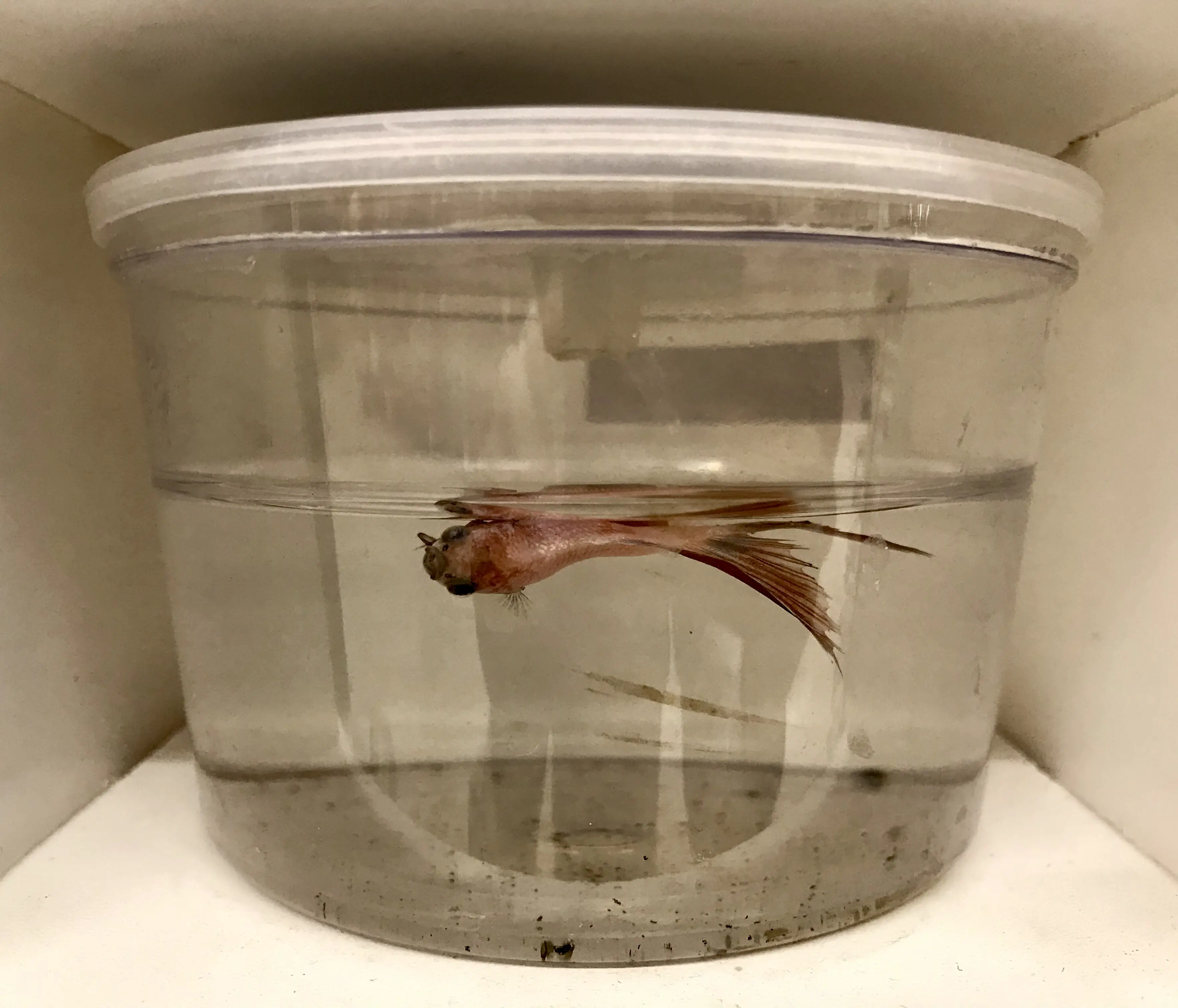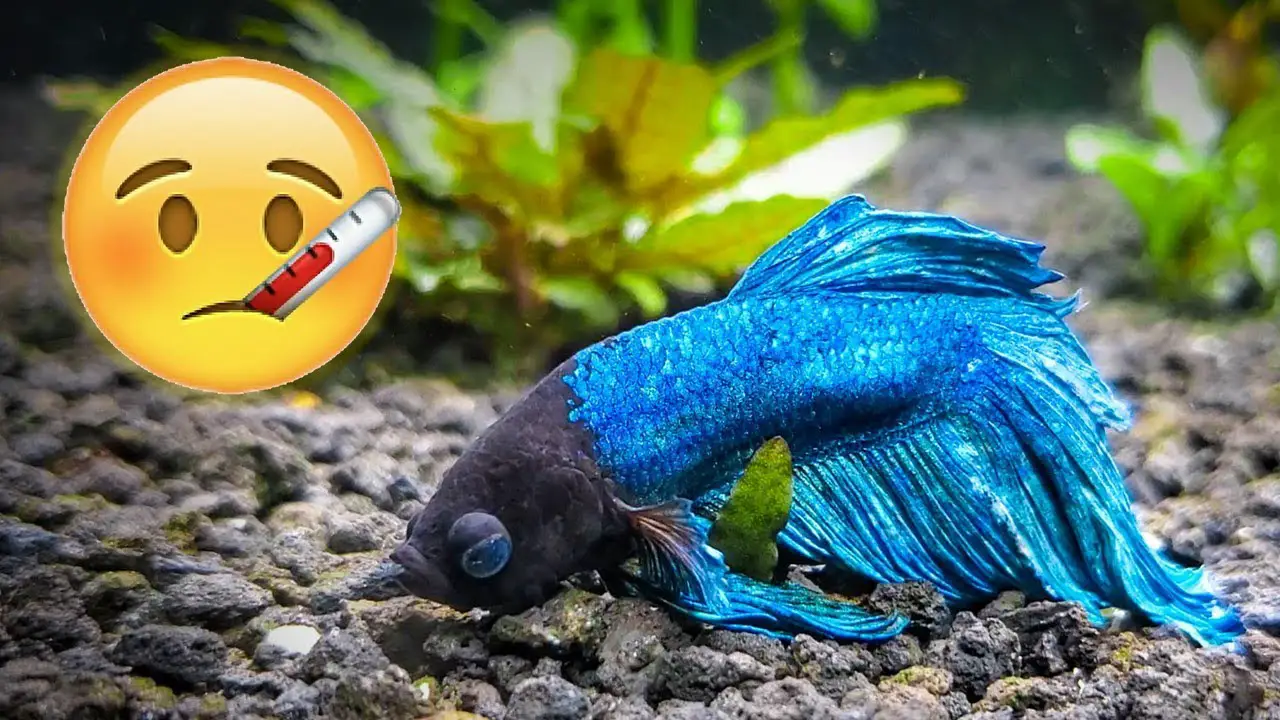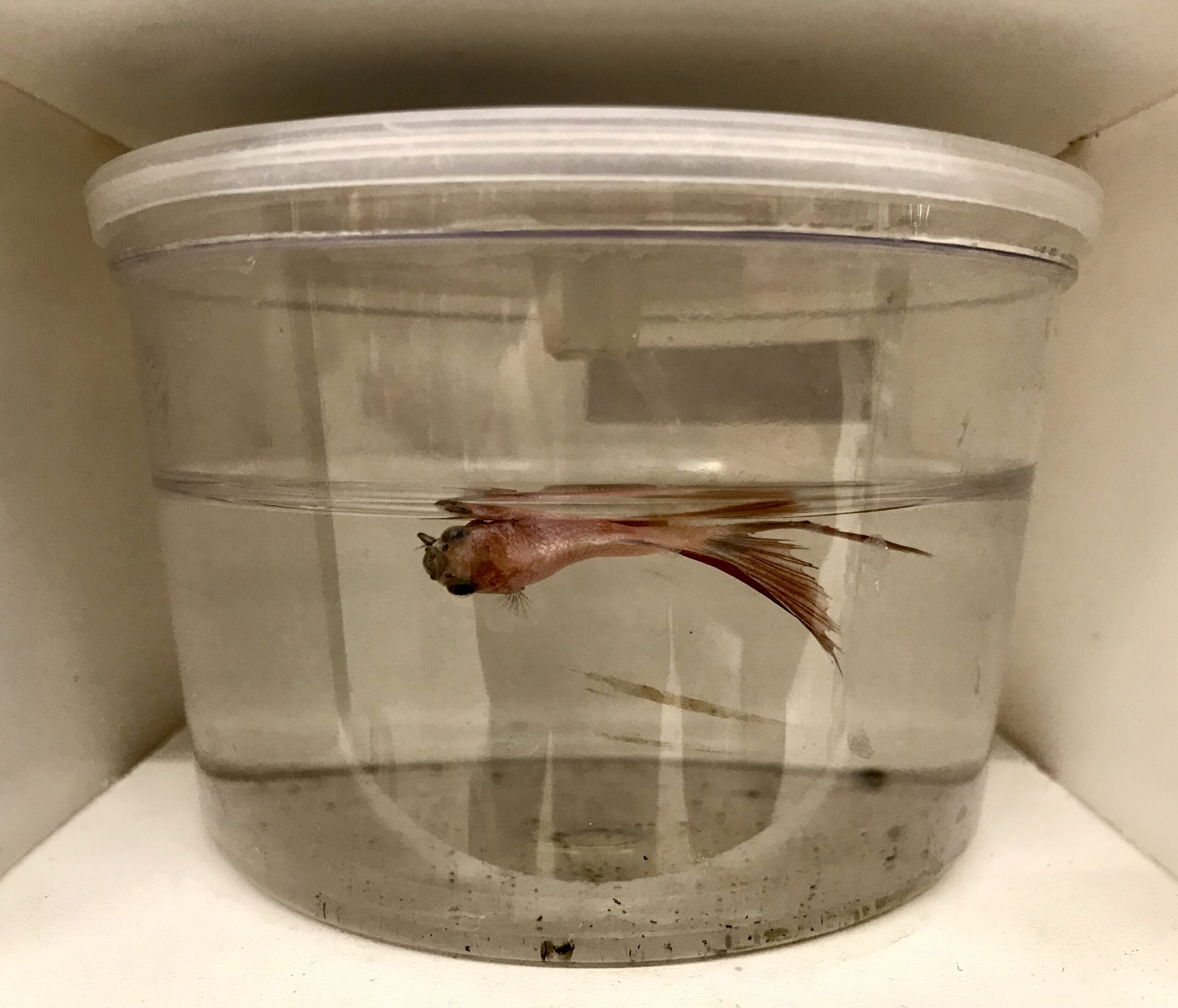Originally posted on May 17, 2023 @ 10:00 am
Last Updated on 4 months by admin
Betta fish are one of the most popular aquarium fish around the world. They are known for their vibrant colors and beautiful flowing fins. However, despite their popularity, betta fish can still fall ill and eventually pass away.
When this happens, it can be a difficult and emotional time for betta fish owners. Many might wonder what they should do with their dead betta fish. In this article, we will explore some respectful and responsible ways to handle the passing of a beloved betta fish.
When a betta fish dies, the first thing to do is remove its body from the tank to prevent the water from becoming contaminated. You can bury the fish in your yard or dispose of it in the trash. If you choose to bury it, make sure the hole is deep enough to prevent scavengers from digging it up. It’s important to remember that dead betta fish can spread disease, so be sure to thoroughly clean the tank before adding new fish.

What to Do With Dead Betta Fish?
Betta fish, also known as Siamese fighting fish, are popular pets known for their vibrant colors and unique personalities. However, despite their beauty, betta fish are not immune to sickness and death. It can be a difficult and emotional experience to deal with a dead betta fish, but it is important to handle the situation properly. Here are some steps to follow when dealing with a deceased betta fish.
Step 1: Confirm That Your Betta Fish Is Dead
The first step in dealing with a dead betta fish is to confirm that it is actually dead. Look for signs such as a lack of movement, unresponsive behavior, and cloudy eyes. You can also gently nudge your fish or touch it with a net to see if it reacts. If your betta fish is indeed dead, then it is time to start thinking about what to do next.
Step 2: Remove the Dead Fish from the Tank
Once you have confirmed that your betta fish has passed away, it is important to remove the fish from the tank as soon as possible. Leaving a dead fish in the tank can cause the water to become contaminated and potentially harm any other fish or aquatic plants in the tank. Use a net to carefully remove the fish from the tank and place it in a separate container.
Step 3: Decide How to Dispose of the Fish
There are several options when it comes to disposing of a dead betta fish. One option is to bury the fish in your yard, but make sure to follow any local regulations or guidelines. Another option is to place the fish in the trash, but be sure to wrap it in several layers of newspaper or plastic to prevent any odors or leakage. Some pet stores may also offer services for proper disposal of deceased pets.
Step 4: Clean and Disinfect the Tank
After removing the dead fish from the tank, it is important to clean and disinfect the tank to prevent any potential health issues for your other fish or aquatic plants. Use a non-toxic cleaning solution and rinse the tank thoroughly with clean water before refilling it.
Step 5: Determine the Cause of Death
While it can be difficult to determine the exact cause of death for a betta fish, it is important to try and identify any potential factors that may have contributed to its death. Look for signs of illness, such as discoloration, lethargy, or fin rot, and assess the water quality and temperature in the tank. This information can help prevent future issues and ensure the health and well-being of your other fish.
Step 6: Consider a Memorial
Many pet owners find comfort in creating a memorial for their deceased pets. You can create a small memorial in your home with a picture, a plaque, or a small urn. Alternatively, you can plant a tree or a flower in memory of your betta fish.
Step 7: Be Prepared for Emotional Reactions
Dealing with the death of a pet can be emotional and difficult. It is important to allow yourself time to grieve and process your feelings. Reach out to friends, family, or support groups for comfort and support during this time.
Step 8: Consider Getting Another Betta Fish
While it is important to take time to mourn the loss of your betta fish, some pet owners may consider getting another betta fish in the future. Make sure to properly care for and maintain the tank to ensure the health and well-being of your new pet.
Step 9: Learn from the Experience
Every experience is a learning opportunity. Take this experience as a chance to learn more about betta fish care and how to prevent potential health issues in the future. Research and educate yourself on proper care techniques and consult with a veterinarian or pet store expert if needed.
Step 10: Remember the Good Times
It is important to remember the happy times you shared with your betta fish. Whether it was watching it swim around the tank or interacting with it during feeding time, cherish those memories and know that your pet was loved and cared for during its time with you.
In conclusion, dealing with a dead betta fish can be a difficult and emotional experience. However, by following these steps and taking the time to care for your fish properly, you can ensure the health and well-being of your other fish and prevent potential issues in the future. Remember to take time to grieve and reach out for support if needed. And most importantly, cherish the happy memories you shared with your beloved pet.
Frequently Asked Questions
As a pet owner, losing a beloved fish can be a difficult experience. Knowing what to do with a dead Betta fish can help alleviate some of the stress. Here are some frequently asked questions regarding this topic.
What should I do with my dead Betta fish?
Firstly, it’s important to handle your dead Betta fish with care. Using a net or gloves, remove the fish from the tank and place it in a plastic bag. If you have a garden, you can bury the fish, making sure to dig deep enough so as not to attract scavengers. Alternatively, you can wrap the fish in newspaper and dispose of it in the trash.
Another option is to cremate your Betta fish. Some pet cremation services offer individual cremations for fish. You can also choose to bury the ashes in a special urn or scatter them in a meaningful location.
Can I flush my dead Betta fish down the toilet?
Although it may seem like an easy solution, flushing your dead Betta fish down the toilet is not recommended. Doing so can harm the environment and potentially contaminate the water supply. It’s also important to note that some states and countries have laws against flushing dead pets down the toilet.
Instead, follow the steps mentioned previously for disposing of your Betta fish in a respectful and environmentally conscious manner.
Is it safe to keep a dead Betta fish in the tank?
No, it’s not safe to keep a dead Betta fish in the tank. A dead fish can release harmful toxins and bacteria into the water, potentially affecting the health of any remaining fish in the tank. It’s important to remove the dead fish as soon as possible and monitor the water quality to ensure the health of your other fish.
If you’re unsure about how to maintain proper water quality, consider consulting with a professional or experienced fish keeper for guidance.
How do I prevent my Betta fish from dying?
Preventing your Betta fish from dying involves proper care and maintenance. This includes providing a suitable tank with appropriate filtration and temperature, feeding a balanced diet, and performing regular water changes.
It’s also important to monitor your Betta fish for any signs of illness or stress and address any issues promptly. Consulting with a veterinarian or experienced fish keeper can also be helpful in maintaining the health and well-being of your Betta fish.
What should I do if I am emotionally attached to my Betta fish?
Losing a pet can be a difficult experience, especially if you were emotionally attached to your Betta fish. It’s important to take the time to grieve and remember your pet in a meaningful way.
Consider creating a memorial for your Betta fish, such as a photo album or frame, or planting a special plant in your garden in honor of your pet. You can also seek support from friends or family members, or consider joining a pet loss support group for additional support and comfort.

10 ways to tell if a betta fish is dying – Betta fish informational video
In conclusion, losing a betta fish can be a difficult and emotional experience for any pet owner. However, it is important to know what to do with the deceased fish to ensure proper disposal and prevent any potential health hazards.
One option is to bury the fish in a backyard or garden area. This allows for a peaceful and respectful farewell, and also gives closure to the pet owner. It is important to make sure the burial site is away from any water sources and deep enough to prevent scavengers from digging up the remains.
Another option is to contact a local pet store or aquarium to inquire about their disposal services. Many stores offer this service for a small fee, and will take care of the fish in a safe and environmentally-friendly manner.
Lastly, if burial or store disposal is not an option, it is important to dispose of the fish in a way that does not harm the environment. This can be done by double-bagging the fish in plastic bags and placing them in the garbage, or by freezing the fish and placing them in the garbage on the day of collection.
Overall, while losing a betta fish can be hard, knowing what to do with the deceased fish can make the process easier and more respectful. By choosing a safe and appropriate method of disposal, pet owners can honor their betta fish’s memory and prevent any potential hazards to the environment.

